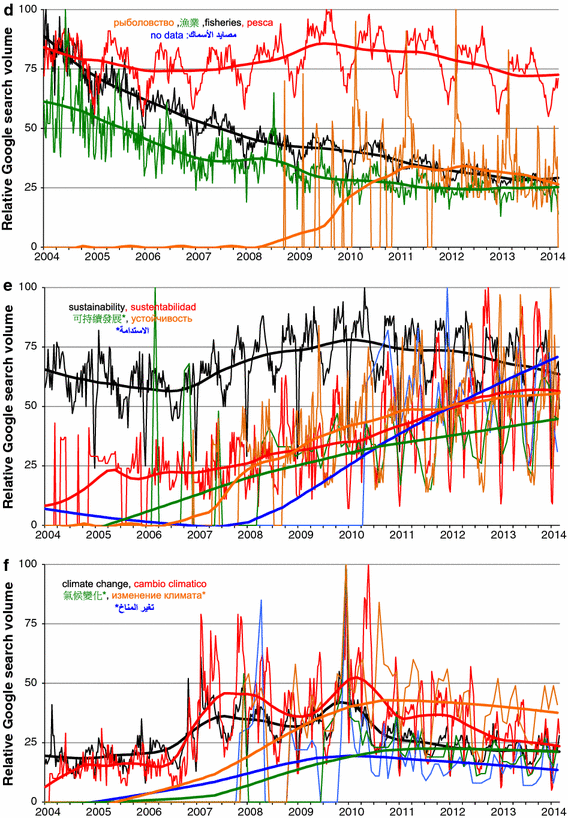The importance of cultural knowledge for the interest toward the environment on the internet
Recent analyses of Internet search behaviour conclude that the public’s interest in environmental issues is falling. These analyses were focused on the English-speaking world. We challenge them by evaluating Internet searches of English and non-English speaking users.
- Funk SM, Rusowsky D. 2014. The importance of cultural knowledge and scale for analysing internet search data as a proxy for public interest toward the environment. Biodiversity and Conservation 23:3101–3112.
Abstract
Recent analyses of Internet search behaviour conclude that the public’s interest in environmental issues is falling (McCallum and Bury, Biodiv Conserv 22:1355–1367, 2013). Ficetola (Biodiv Conserv 22:2983–2988, 2013) argued that the nature of the underpinning data processing may create an artificially declining trend, even when the absolute number of searches increases and public interest is growing. These findings are highly relevant for applied conservation strategies and the public media have quickly picked the message of the alarming fading interest worldwide, the possibility of devastating repercussions and calls for rapid responses in conservation communication.
We challenge both analysis by evaluating Internet searches of English and non-English speaking users. The inclusion of information on the linguistic background reveals a much more differentiated picture, with some cultures displaying an increasing interest and others a decreasing interest. These analyses allow a better understanding of the importance of global—local viewpoints, cultural knowledge and cultural differences on the interpretation of underpinning human interest from Internet search patterns.
Despite methodological problems limiting the utility of summary data provided by search engines, they can offer powerful information when applied spatially and temporally restricted and analysed alongside suitable benchmark indicators.
We discuss that due consideration of methodological caveats is essential to inform the general public about the relevance for conservation without triggering sensationalist or over-generalizing conclusions. Conservation communication needs considering that Internet search engines do not necessarily mirror the interest of many people who are essential for the conservation of biodiversity.
Relative volumes and trends of individual worldwide Google searches using environment-related terms in different languages.


